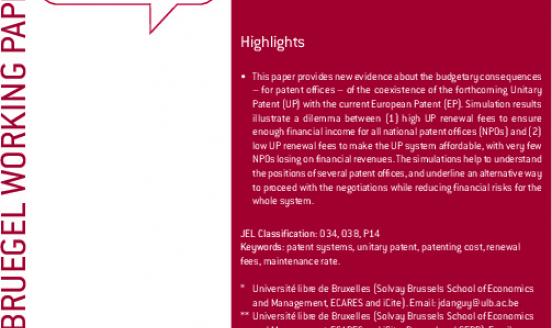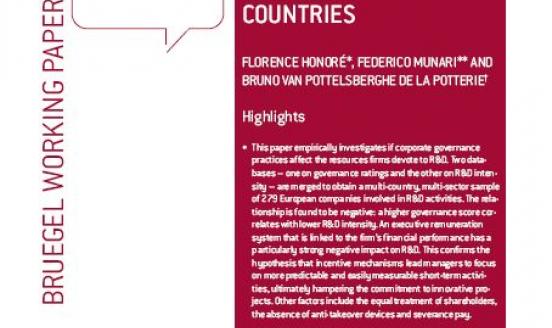Working paper
Economic incongruities in the European patent system

Bruno van Pottelsberghe argues that the consequences of the fragmentation of the European patent system are more dramatic than the mere prohibitive costs of maintaining a patent in force in many jurisdictions. The authors first show that heterogeneous national litigation costs, practices and outcome induce a high level of uncertainty. But also that a high degree of managerial complexity results from systemic incongruities due to easier parallel imports, possible time paradoxes and the de facto paradox of having EU-level competition policy and granting authority, ultimately facing national jurisdictional primacy on patent issues.

